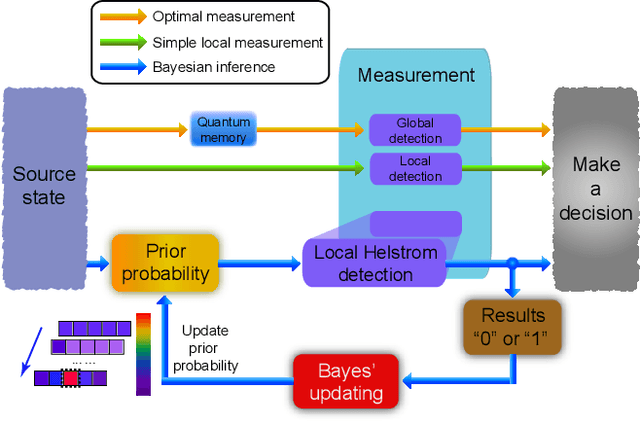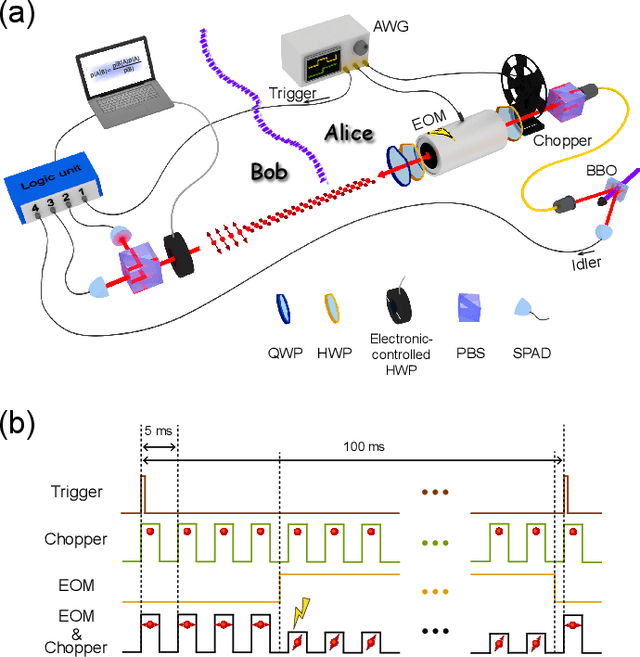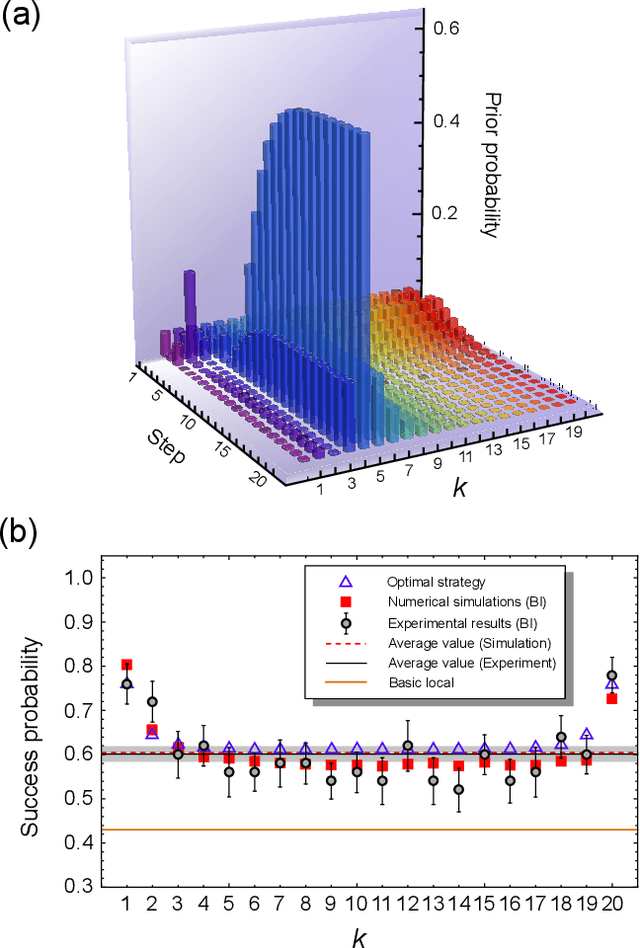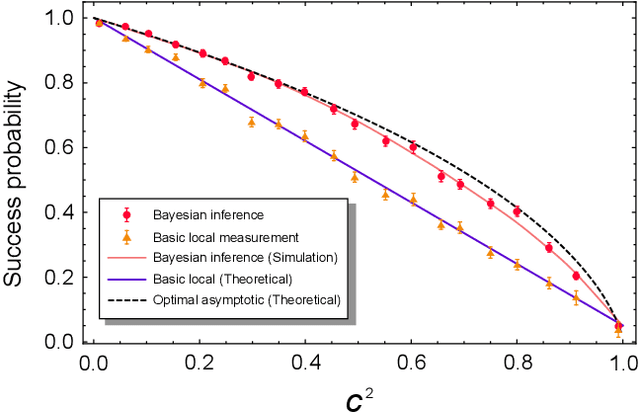Ramon Muñoz-Tapia
Online optimal exact identification of a quantum change point
Nov 06, 2018
Abstract:We consider online detection strategies for identifying a change point in a stream of quantum particles allegedly prepared in identical states. We show that the identification of the change point can be done without error via sequential local measurements while attaining the optimal performance bound set by quantum mechanics. In this way, we establish the task of exactly identifying a quantum change point as an instance where local protocols are as powerful as global ones. The optimal online detection strategy requires only one bit of memory between subsequent measurements, and it is amenable to experimental realization with current technology.
Experimentally detecting a quantum change point via Bayesian inference
Jan 23, 2018



Abstract:Detecting a change point is a crucial task in statistics that has been recently extended to the quantum realm. A source state generator that emits a series of single photons in a default state suffers an alteration at some point and starts to emit photons in a mutated state. The problem consists in identifying the point where the change took place. In this work, we consider a learning agent that applies Bayesian inference on experimental data to solve this problem. This learning machine adjusts the measurement over each photon according to the past experimental results finds the change position in an online fashion. Our results show that the local-detection success probability can be largely improved by using such a machine learning technique. This protocol provides a tool for improvement in many applications where a sequence of identical quantum states is required.
 Add to Chrome
Add to Chrome Add to Firefox
Add to Firefox Add to Edge
Add to Edge